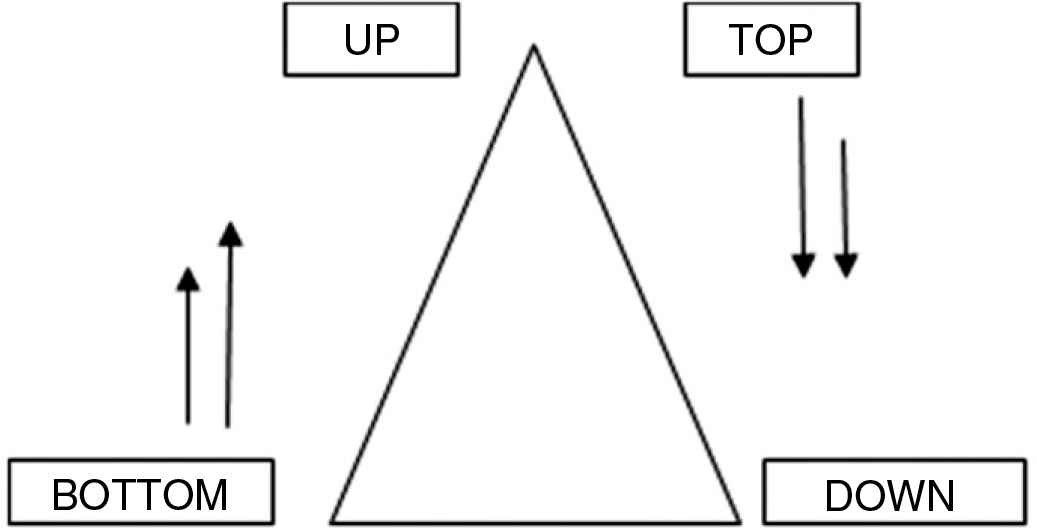Abstract
Purpose
The purpose of this study was to estimate the cost of dental implant using the bottom-up approach with the current data from dental clinics.
Materials and methods
In this study, direct and indirect costs required for each treatment were calculated using the bottom-up approach. In the bottom-up costing, the average monthly total cost of dental clinic includes labor and material costs, administrative expenses, medical malpractice costs, and opportunity costs of invested capital. For the dental implant cost components, those include direct costs (labor costs, laboratory costs, material costs, depreciation or other operating costs), indirect costs (administrative costs), and the opportunity costs of investment for dental clinic.
Results
Dental implant costs of metal crown, porcelain crown and over-denture were 1,449,000 won, 1,583,000 won, and 2,471,000 won respectively. The proportion of cost components was as follows. The labor cost were 50%, and material, administrative and other cost were 33%, 15% and 2%, respectively. For direct, indirect and investment cost, the ratio were 83%, 15% and 2%, respectively.
Go to : 
REFERENCES
1.Hong SJ. The study of implant patient's type and implant distribution. Master's Thesis, Graduate school of Dentistry, Yonsei University. 2002. 8:1–25.
2.Heydecke G., Locker D., Awad MA., Lund JP., Feine JS. Oral and general health-related quality of life with conventional and implant dentures. Community Dent Oral Epidemiol. 2003. 31:161–8.

3.Shin HS., Oh YH., Choi HN., Park EM. Dental implant cost analysis. Korea Inst Health Soc Aff Policy Rep. 2008. 78:1–79.
4.Kim SG., Son SY., Jeong SA., Jeong MA. The factors affecting on treatment decision for the of patient Dental implant. Korea Contents Soc. 2011. 11:264–5.
5.Seo NK., Lee OH., Tae YH., Baick SC., Seo SU., Ahn SJ., Hwang YH., Kang TW. 2011 Survey on medical expenditure of patients insured by National Health Insurance. Natl Health Insur Corp/Health Insur Policy Res Inst. 2012. 32–3.
6.Chae YM., Lee HJ., Park CJ., Chung JS. A development and application of decision support system for cost analysis. J Prev Med Public Health. 1993. 23:65–76.
7.Horngren CT. Cost accounting: a managerial emphaisis: Student guide. 4th ed.New Jersey: Prentice-Hall;1977. p. 4–20.
8.Ahn TS., Lee KH. The Study of design characteristics of cost accounting system in Korea medical institution. Korean Accounting J. 1997. 6:79–114.
9.Kim JH. A study on the constructive cost estimation model development of the defense information system soft ware project. Master's Thesis, Graduate school of Business administration, Hannam University,. 2011.
10.Lee JB., Shin HS., Kim HS. Dental Prosthodontic Service and Aftercare Cost: Focusing on Full and Partial Denture. Seoul National University;2006.
11.Shin YS., Shin HW., Ryu GC., Shin HS., Park SVA., Kim JH., Kim JH., Noh YH., Im JW., Na JI., Ahn ES., Kim SJ. Accounting survey of medical institutions to improve relative value by type of medical practice. Natl Health Insur Corp/Korea Inst Health Soc Affairs Policy Rep. 2012. 25:234–55.
12.Olsson TM. Comparing top-down and bottom-up costing ap- proaches for economic evaluation within social welfare. Eur J Health Econ. 2011. 12:445–53.
13.Chapko MK., Liu CF., Perkins M., Li YF., Fortney JC., Maciejewski ML. Equivalence of two healthcare costing methods: bottom-up and top-down. Health Econ. 2009. 18:1188–201.

14.Bellanger MM., Tardif L. Accounting and reimbursement schemes for inpatient care in France. Health Care Manag Sci. 2006. 9:295–305.

15.Kang HJ., Chung HY., Park YG. An economic evaluation of GHG emission reduction options in industrial sectors. J Korean Inst Plant Eng. 2004. 9:43–52.
16.Cho SS., Ko JG. A Study on Relevant Costing Estimation Models and New Alternative Method in Telecommunications Industry. Electron Telecommun Trends. 2001. 16:136–8.
17.Jung YM. Case study on activity-based costing for a hospital. Health service administration. Graduate school of Public Health, Inje University. 2004. 8:5–31.
18.Shin HS., Ahn ES., Yeon KS., Ryu JI Kim CS., Hur SJ. Establishment of a Rational Dentistry Delivery System. Korea Institute Health Soc Affairs Policy Rep. 2009. 90:61–2.
19.Lee DH. The development of new model for calculating resource-based relative value scale of medical procedures: focusing on practice expense. Master's Thesis,. Graduate School of Public Health Yonsei University;2002.
20.Korean Certified Public Accountants. Costing Criteria article 3.
21.Park IS. A study on the hospital costing system and improvement plan. Master's Thesis, Graduate School of Public Administration, Sungkyunkwan University,. 2005.
22.Shin HS., Ahn ES. Dental Implant cost estimation using the Activity-Based Costing approach. J Korean Acad Prosthodont. 2013. 51:292–9.

23.Hwang HS. Analysis on the current status and factors of non-reimbursable prosthodontic treatment price at dental clinic. Master's Thesis, Graduate School of Public Health, Korea University,. 2006.
24.Chung JY. Factors impacting on the satisfaction of implant patients in Daegu and Kyungpook areas. Master's Thesis, Graduate School of Public Health, Yeungnam University,. 2005. 8:32–33.
Go to : 
Table 1.
Average monthly labor cost by job type (Unit: person, thousand won)
Table 2.
Labor cost per minute
Table 3.
Total times required for surgical procedures, implant prosthesis an follow-up management
| Prosthesis of dental implant | Time required for treatment |
|---|---|
| Metal crown | 499.8 minute |
| Porcelain crown | 574.4 minute |
| Over-denture | 828.4 minute |
Table 4.
Average numbers of dental implants treated per dental clinic in 2008
| Time | Average numbers of dental implants |
|---|---|
| Monthly | 17.89 |
| Annual | 215 |
Table 5.
Laboratory cost for a dental implant (Unit: won)
Table 6.
Annual mean administrative cost and allocation method (Unit: The number, thousand won, %)
note: ∗ Shin Young Seok et al. Accounting Survey of Medical Institutions to Improve Relative Value by Type of Medical Practice. National Health Insurance Corporation/Korea Institute for Health and Social Affairs policy report 2012.
Jung Yong Mo. Case study on Activity-Based Costing for a Hospital. Health services administration, Graduate school of public health Inje university. 2004.
Table 7.
Dental implant bottom-up cost (Unit: won)




 PDF
PDF ePub
ePub Citation
Citation Print
Print



 XML Download
XML Download